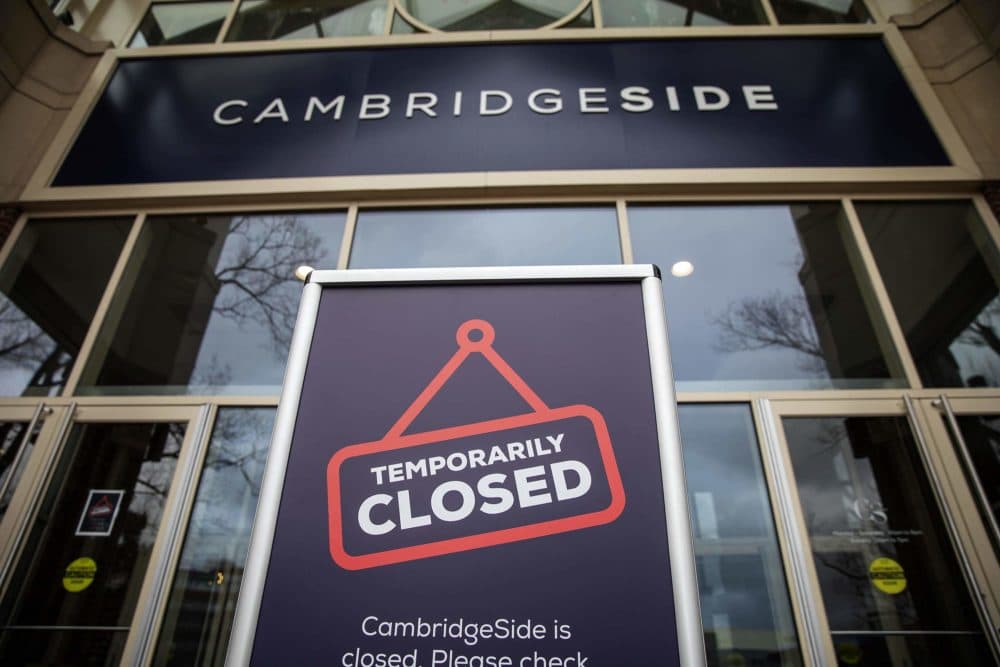Advertisement
Emergency Loans For Small Businesses Are Coming: Here's What To Know

As part of the Coronavirus Aid, Relief, and Economic Security (CARES) Act passed by congress last week, there should be some relief coming for small businesses.
One program, dubbed the Paycheck Protection Program (PPP), begins this Friday. It provides forgivable loans to keep employees on the payroll for at least a couple of months.
However the PPP, which will be handled by the Small Business Administration (SBA), is not the only option.
Below is a quick rundown of three SBA programs available to help small businesses during a time when many are shutdown because of the COVID-19 pandemic.
But first, who's eligible for these loans?
Basically, any business with 500 or fewer employees (or no more employees than the number set by the SBA as the industry standard). That includes non-profits, veterans organizations, Tribal businesses, sole proprietorships, self-employed individuals and independent contractors.
How does the Paycheck Protection Program (PPP) work?
The way the Paycheck Protection Program works is that a business can apply for the loan through a local SBA lender, and use the money to cover up to eight weeks of expenses, such as payroll, (including benefits), rent, mortgage insurance and utilities.
Loans can be for up to two months of your average monthly payroll costs from the last year, plus an additional 25% of that amount, subject to a $10 million cap.
Here's the most important feature of the program, according Robert Nelson, director of SBA’s Massachusetts District Office: "If the business is able to maintain its employees through June 30th, the entire loan could potentially be forgiven."
One catch: for the loan to be forgiven, it can only be spent on payroll costs, mortgage interest, rent, and utilities payments over the eight weeks after getting the loan. Also, no more than 25% of the forgiven amount may be used for non-payroll costs.
The CARES Act sets aside $349 billion for the PPP. For perspective on how much that is, consider that during the SBA's biggest fiscal year (FY 2018) it loaned out about $30 billion.
According to the SBA, all PPP loans will have the following features:
- Maximum loan amount of $10 million
- Low interest rate
- Maturity of 2 years
- First payment deferred for six months
- 100% guarantee by SBA
- No collateral requirement
- No personal guarantees
- No borrower or lender fees payable to SBA
Economic Injury Disaster Loans
Under the EIDL program, the SBA is offering low interest loans to small businesses suffering economic injury as a result of the pandemic. Small businesses can apply for loans up to $2 million, with an advance of up to $10,000. And to make things easier on borrowers, the first payments are not due for 12 months.
Here are some other key features of EIDL loans:
- Maximum loan amount of $2 million
- Interest rate of 3.75% for for-profit businesses
- 2.75% for eligible private non-profit entities
- Extended loan maturity for 30 years
- Loans funded by the U.S. Treasury
- No collateral required for loans under $25,000
- No cost to apply and no obligation to take the loan if offered
- Personal guaranties will be required of from individuals who own 20% or more of the business
With an EIDL, it could take up to 21 days for local SBA administrators to make a decision, and another 5-7 days for the funds to close. If time is of the essence, you may want to seek out a PPP loan first, because local lenders may be able to get money to a business quicker.
Express Bridge Loan (EBL) Pilot Program
This program is meant to provide an immediate short-term loan of up to $25,000 to tide a business over in a disaster situation. The idea is to use this as a bridge while waiting on longer-term financing.
On March 25, the SBA expanded the Express Bridge Loan Pilot Program eligibility to include small businesses nationwide that have been adversely impacted by the coronavirus pandemic.
One thing to note, however, is that only "SBA Express Lenders" can give out these loans. And only businesses with a previous relationship to the lender can obtain them. So as businesses look for short-term capital to stay afloat, they should ask their lender whether this an an option, said Nelson.
This article was originally published on April 02, 2020.
